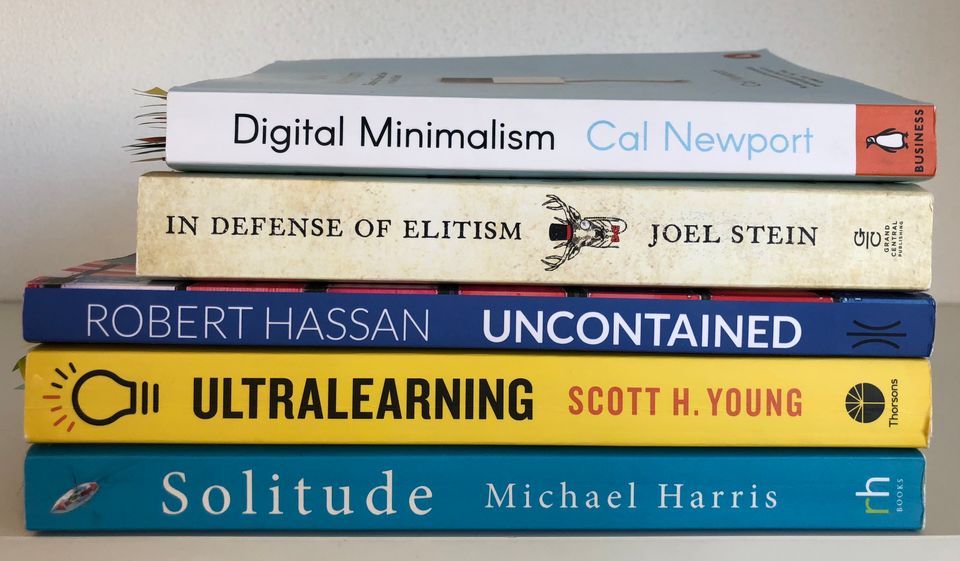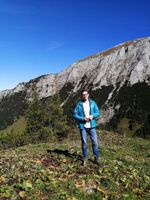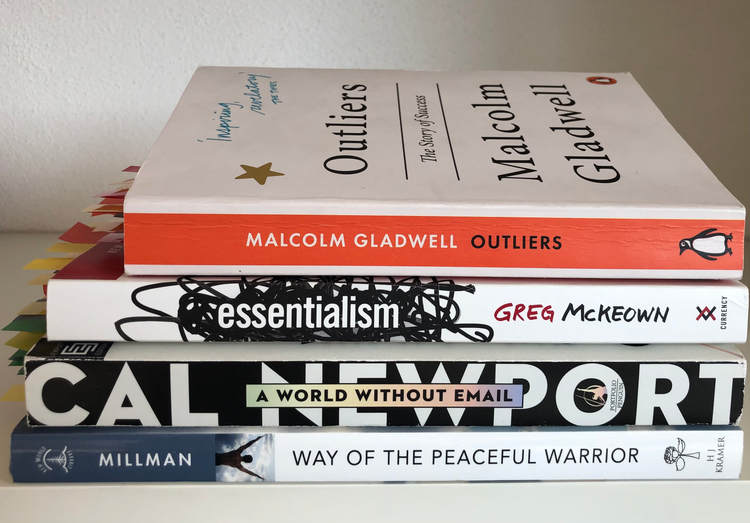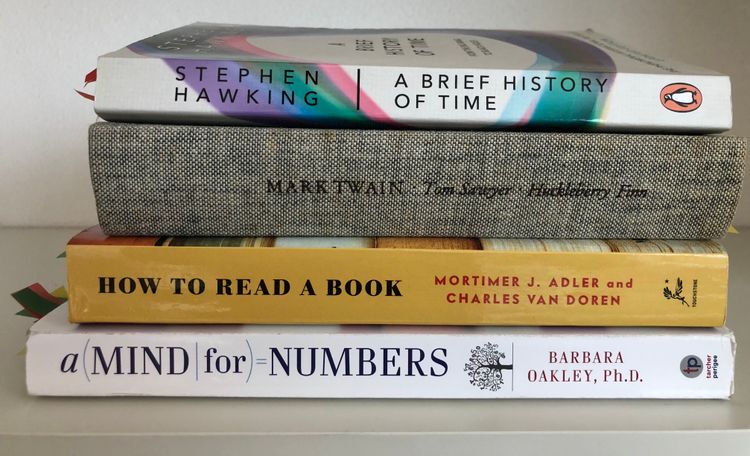February's reads

The choices of this month’s (February 2022) reading list might be seen as a continuation of the overarching theme begun the previous month: How technology affects our lives.
Digital Minimalism, by Cal Newport
Last month, in January, I had the pleasure to read two books by Calvin Newport, Deep Work and So Good They Can’t Ignore You. He explores how we become good at what we do in both works. Digital Minimalism, a major bestseller, expands on several points opened in the two last pieces. Mainly, this is how our — predominantly thoughtless — relationship with digital services is taking away time, time which we could spend in the real world. The book is split into two parts; the first one deals with the effects of digital tools, the second part shows ways to regain control over our online presence.
I enjoyed reading this book and have made quite a large number of notes while going through it. As with the previous two works by Newport, I am amazed by the clarity and accessibility of his writing. Also, this handy book is highly functional, giving the inclined reader many concrete strategies to reduce (digital) media consumption.
This book is a recommendation for everyone insecure about the growing influence of digital tools on one’s life.
Favorite quote:
“The cumulative cost of the noncrucial things we clutter our lives with can far outweigh the small benefits each individual piece of clutter promises.” (p. 42)
Ultralearning, by Scott H. Young
This book came to me by accident. I was going through Cal Newport’s voluminous archive of blog posts (which are mainly about studying, the influence of technology, and a focused living) when an article caught my attention. The report is a guest contribution by Scott Young. He got extensive media coverage when he finished the whole MIT Computer Science curriculum within twelve months. This being said, in the guest post, Young gives some hints about his intensive learning strategies.
Inclined, as learning is something that we (should) never stop doing, I did a quick research and found his blog. Upon seeing that he had written a complete book on the topic of (unconventional) learning, I ordered a copy. After reading through it from cover to cover, I must say that I am fascinated by the feats achieved with the right learning strategies. Ultralearning, in contrast to the more common ways, aims at bringing the learner up to speed in a much shorter time. However, without the right strategies, this won’t happen.
In his book, Ultralearning, Scott Young gives several learning strategies, which make up the concept of ultralearning. Each chapter detailing a strategy begins with one or two examples and then explains the idea.
I found the book to be a very engaging and practical read. Who does not dream of learning a skill much faster, be it for personal benefits (such as mastering a language) or for career advancement (such as excelling at a business software)? Therefore, this book is a gem for anybody wanting to learn faster.
Favorite quote:
“Learning, at its core, is a broadening of horizons, of seeing things that were previously invisible and of recognizing capabilities within yourself that you didn’t know existed.” (p. 34)
Uncontained, by Robert Hassan
In this part memoir, part autobiography, part essay, Robert Hassan recounts his journey aboard the Rossini container ship from Melbourne to Singapore. Except for an old MP3-Player, Hassan travels without any digital devices: no smartphone, no computer, nothing. Spending much time away from the clocks and the subtle digital connections that creep into our lives, he is free to explore a more natural lifestyle.
As he tells, he soon recognizes that his sleep pattern has changed, and, even more important, his experience of time. He contrasts this subjective experience with the objective wall-clock time, the 24-hour format that guides our days.
I have to admit that the combination of the title, Uncontained, and the cover, showing a bird’s eye view of a large container ship, convinced me to dive into this book. I enjoyed reading it and was especially curious about the pages dedicated to his changing sleep pattern.
This book is a short, personal, and essayistic work that makes a good companion for a road trip; even more, for an extended amount of time away from the digital realms.
Favorite quote:
“The clock is unerring and homogeneous, but our experience of time is not.” (p. 41)
In Defense of Elitism, by Joel Stein
In this humorous book, author Joel Stein — who also publishes on Medium — explains his attempts to save the often denounced elite. After reading this book, I came away with an increased understanding of the problems created by labelling people as elitist or populist. I credit this to Stein’s honest self-criticism, which also points to the elitist movement’s faults.
The book was an enlightening read about the social, economic, and education problems that American society has to deal with. Apart from this, it was a fast read, suitable for a single, entertaining cover-to-cover reading, but not for repeated devour.
Favorite quote:
None (too many noteworthy sections that speak only within their context)
Solitude, by Michael J. Harris
After reading Robert Hassan’s Uncontained, I was left with the wish to read more about the experience and effects of solitude, of being away from the usual structures. Harris’ Solitude was an excellent fit for this wish.
In his book, author Michael Harris shows how the experience of unconnectedness and being for one’s self is more and more becoming a forgotten art. This, he argues, is not a good progression, as being alone has many positive implications.
Without spoiling you the enjoyment of reading this book, Harris talks about three major effects of solitude: self-knowledge, fresh ideas, and increased appreciation for relationships. Throughout the book, he gives examples of people from all kinds of lives and shows how they deal with solitude.
What I enjoyed about this book was its calm, floating tone. Rarely did I experience Harris as judgemental; especially toward the end, he makes room for multiple viewpoints. By weaving in intimate memories, Michael Harris succeeds at giving the work a personal touch. I recommend this book, especially in connection with Robert Hassan’s Uncontained, to anybody looking to learn more about being alone and not perishing at this thought.
Favorite quotes:
“To be human is to be social; to be human in the age of screens is to be massively social.” (p. 17)
&
“[T]he person who knows how to be properly alone is never completely alone.” (p. 38)



